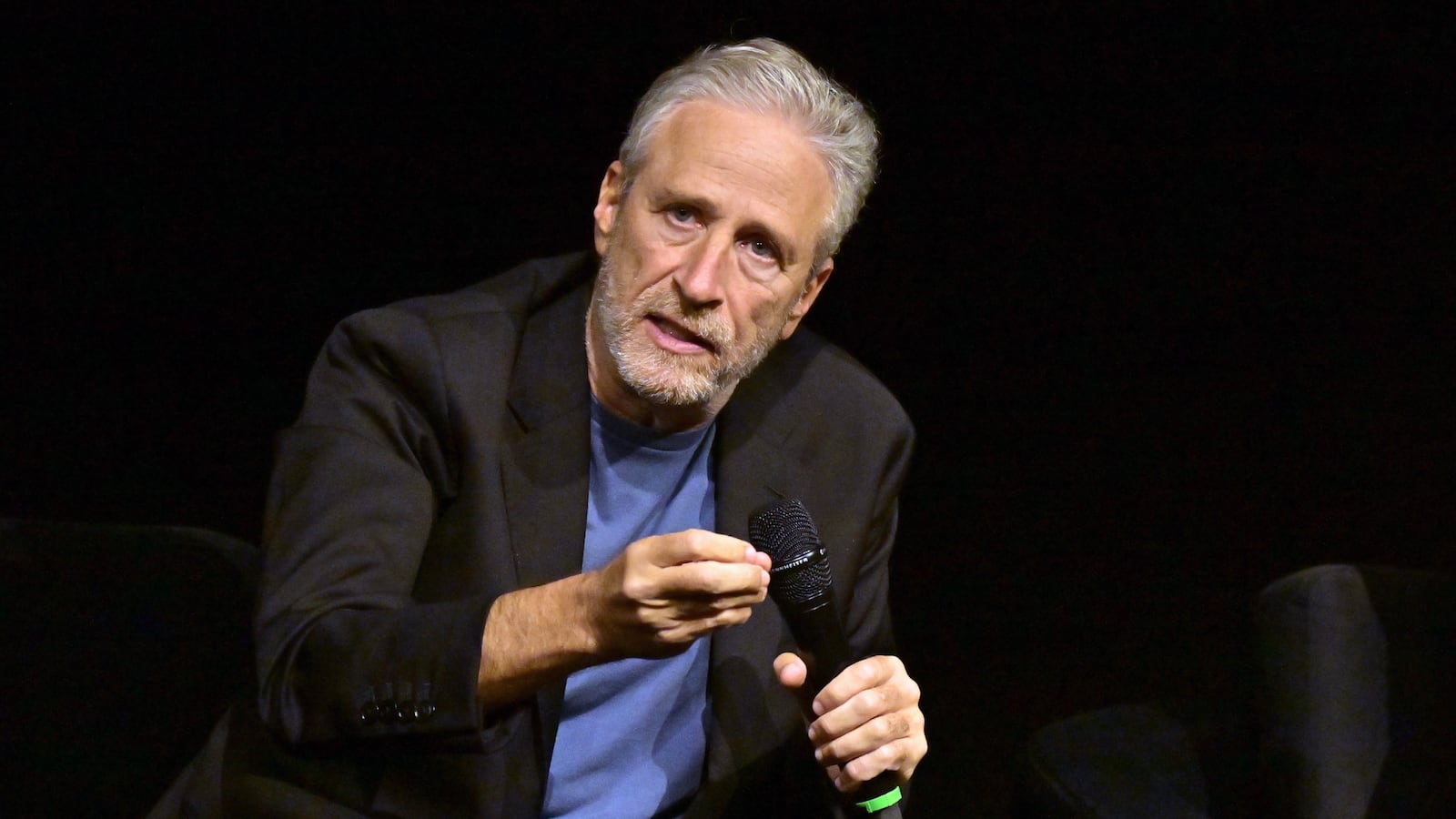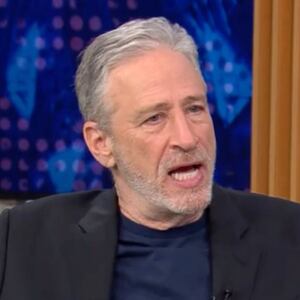Jon Stewart has finally broken his silence about what went wrong with his Apple TV+ show before its cancellation—and revealed the moment he realized the “aims” of his show and the streamer “do not align in any way.”
The Problem With Jon Stewart, which aired for two seasons from 2021 to 2023 on the platform, was shelved last year as rumors swirled that Apple had tried to “censor” him. But Stewart said that’s not exactly what happened.
“They didn’t censor me,” Stewart said this week on the podcast The Town. “When you work for a corporate entity—that’s part of the deal, even at Comedy Central [where The Daily Show lives]: The deal is, I get to do what I want until they think it’s gonna hurt their beer sales or whatever it is that they wanna sell,” he continued.
Stewart went on to describe the specific segment and subsequent moments with Apple execs that caused him to realize, “I’m not sure I can win here.”
During the show’s second season, “There was an interview with Larry Summers and I had had the idea that using the fed to whip inflation was ignoring the fact that so much of inflation is for corporate profit,” Stewart began. “And [using] the fed is a blunt tool and you got all these other [tools you could use]. Larry Summers was very big on ‘The fed has to cut interest rates and if that means we go into a recession [and] 10 million people lose their jobs, hey, [it’s a] utilitarian approach.’”
“He had come very loaded for bear if you will,” Stewart continued, “and so in his ammunition, what he had prepared in his paper bag lunch was he was going to throw the fact that I work for Apple back on me.”
“I was saying, but what about corporate profits? This really doesn’t do anything to address how they’ve been killing it in the pandemic,” Stewart recounted, after which Summers pointed out that Apple’s profits during the pandemic had also surged, and asked Stewart whether or not his streaming home was also “gauging.” Stewart answered that all corporate giants do, and ultimately got Summers to concede that the Fed raising interest rates maybe wasn’t the best. Audiences loved it, but Apple, according to Stewart, did not.
He said that when he saw Apple executives afterward, “They go, ‘Are you gonna use that Summers’ thing?’” which set off a string of conversations in the weeks before the segment aired that made him realize, “Our aims do not align in any way.”
“We’re trying to make the best, most insightful execution of the intention that we can make but they’re protecting a different agenda—and that’s when I knew, we’re in trouble. And it continued that way.” Months after that episode, the show was canceled, as insiders blamed “creative differences.”
Stewart said that when working for any large company, it’s par for the course to side-step some issues to protect corporate interests, even when your show’s doing well—but it all just became too much for him to bear.
“If you’re working for a content company, every metric that you would look at to say you were successful in that market, was there [for The Problem],” he explained. “They even said that to us, you drew people to the platform, you performed well on the platform, your moments went off the platform to gain some recognition and it was all there—just, ‘Please stop doing it.’”
“There’s a mantra we all have to remember,” Stewart said later, even more bluntly. “Corporations are pussies. They are now, and they always have been.”
Another problematic aspect of the current landscape, Stewart said, is that some of the biggest content buyers right now are not entertainment-first companies. “Apple isn’t just a content company, they have a whole other side business,” he said, “So if you think about it, content for them, and I don’t wanna say it’s a lark, but it is not core to their brand identity.”
He then agreed with the statement that for Apple, content is “a hobby, it’s not the job,” adding, “When Ted Lasso really hit big, it’s amazing—but if there’s some asshole who’s out there perhaps damaging relationships that they think are more important…”
Ultimately, he concluded, “I learned that I could not help them in the way that I think I may have been able to help Comedy Central. I think in their determination, [they felt] I could hurt them.”








